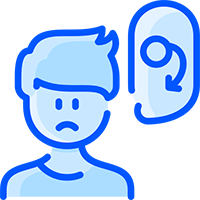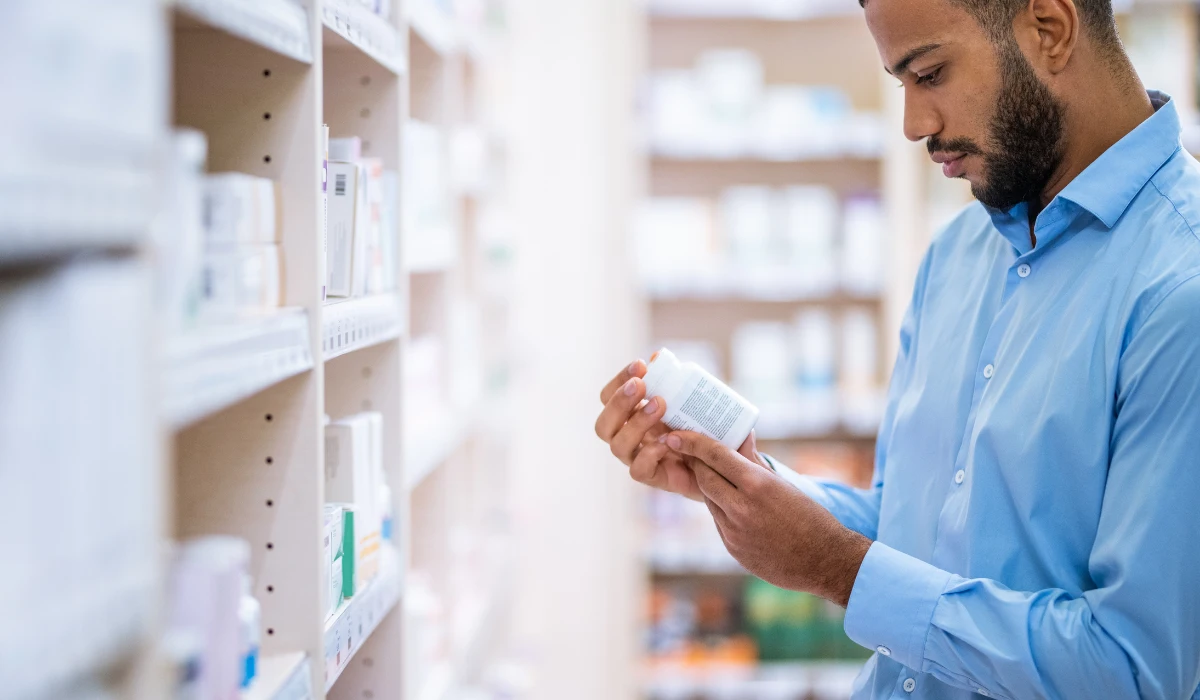Are you wondering whether or not you can ejaculate with a flaccid penis? If so, then you have come to the right place. In this article, I’m going to try and answer a few of the most common questions people have about flaccid penises and erectile dysfunction.
If there’s one thing for certain, they aren’t fun. But it’s not like you have to sit back and accept the situation. Indeed, there are a lot of things you can do to bring life back into your flaccid penis, and we’ll discuss them below.
Table of Contents
Men Penis Ejaculation When Soft
Believe it or not, you don’t need an erection to ejaculate. This is because it’s your pelvic muscles that are responsible for expelling semen, and, as it turns out, they have nothing to do with making you erect. So it may seem weird, if not downright unusual, but the fact is that you can ejaculate while being limp. Not that you would want to with a partner, but hey, it’s there for you to try in case.
The Physiology
While it may seem simple, getting an erection is much more complicated than you think. It starts with stimulation, both physical and mental. Once you feel sexually aroused, your nervous system sends a message to the muscles surrounding your manhood to relax, allowing blood to course into the soft erectile tissue of your penis.
The process that allows you to reach orgasm and ejaculate is separate from the process responsible for giving you an erection. The two processes are very different from one another.
Erections are controlled by muscles and erectile tissue of the penis. Orgasm is controlled by your central nervous system, and it’s actually a reflex action.
When you’re sexually stimulated, such as during penetrative sex or manual stimulation by you or your partner, arousal and excitement gradually builds. This is known as sexual excitation. When the excitement reaches a certain point, it triggers your ejaculatory mechanism.
The ejaculatory mechanism occurs regardless of whether the penis is flaccid or erect, meaning you don’t need to have an erection in order to reach orgasm and ejaculate.
Why It Happens
Quite simply, it happens — or it can happen — because the physiology permits it. If the penis is sufficiently stimulated, you would be able to ejaculate, despite not attaining a full erection.
This can be good news to some men who are suffering from erectile dysfunction and are unable to have penetrative sex.
Of course, there are many sensations that come with an erect penis that you won’t be able to experience with an in-erect one (the sensation of penetrative sex being one), but certainly, orgasm is still possible.
The Erectile Dysfunction And Flaccid Penis Ejaculation
Obviously, one suffering from erectile dysfunction will have a flaccid penis even after getting aroused. That’s just the nature of the problem. You can try reaching orgasm with your flaccid penis or you can do something about your erectile dysfunction.
After all, erectile dysfunction is totally curable, and some didn’t even have to take medication to do it. For some, lifestyle changes will do. For others, however, they may need to go through more drastic processes.
What Is ED
Erectile dysfunction (ED) is an inability to develop or keep an erection. The most common cause of ED is age. Indeed, it’s a common problem for men older than 40. It is estimated that one in ten of men over 40 have this condition. ED is often due to problems in how blood vessels work inside your penis and can be treated with medication or surgery.
Erectile dysfunction can be caused by both psychological and physical factors. The most common causes are related to the nerves, blood vessels, and muscles of the penis. Causes can also include side effects of medication and medical problems that can affect a man’s health.
An evaluation for ED begins with a detailed sexual history, including the onset, duration, and frequency of symptoms. A physical examination, including a general assessment of the appearance of the penis, is done to rule out other causes. A blood test, including blood count, cholesterol, and fasting glucose, may be needed to evaluate cardiovascular risk factors. Men who suspect they have ED should be referred to a urologist or other specialist. If symptoms persist, additional diagnostic tests are needed.
How To Solve The Problem?
Yes. There is a treatment for ED that is very effective in 90% of men. It is called a phosphodiesterase type 5 inhibitor, or PDE5I. These drugs improve blood flow to the penis by relaxing blood vessels, which helps allow an erection to form.
The first step is to have a conversation with your doctor to discuss options for treatment. The goal is to have the best outcome for you as a patient, and to have the best chances of a successful outcome, it is important that your treatment options include all of the following: a low-fat diet; exercise; stress management; and a healthy diet and lifestyle.
Medication
If these doesn’t improved with lifestyle modification, the next step is drug therapy, and for some men it might include a PDE-5 inhibitor such as Viagra or Cialis. Below are some of the most common medications for treatment of ED
- Sildenafil (Viagra): Sildenafil is one of a family of compounds called PDE-5 inhibitors. It works by preventing breakdown of a substance in the blood known as cGMP, which can relax blood vessels and help blood flow into certain parts of the body. It’s used as a treatment for erectile dysfunction in men and also for pulmonary arterial hypertension (PAH) in both men and women. For the best results with oral sildenafil, it should be taken on an empty stomach 45 minutes to 1 hour before sexual activity. Viagra is a generic brand name of sildenafil citrate. Sildenafil citrate is the chemical that makes up the active ingredient in the drugs. Sildenafil is available as tablets in doses of 25, 50, 100, and 120 mg. A single dose can be taken anywhere from half an hour before sexual activity to a few hours afterwards.
- Tadalafil (Cialis): Tadalafil is the generic name of the prescription drug Cialis. It is a potent drug that belongs to a class of medications called PDE5 inhibitors. This type of medication works by preventing the enzyme phosphodiesterase type 5 from breaking down a chemical messenger in the body called nitric oxide. When nitric oxide is released, blood vessels expand and allow blood to flow into the penis for an erection. The usual starting dose of tadalafil (Cialis) for both ED and BPH is 2.5 mg once daily. Your doctor may increase or decrease this dose based on your response. Common side effects are headache, dizziness, stuffy or runny nose, back pain, or upset stomach. You may have a temporary increase in blood pressure. After one dose of tadalafil, your erection should last 4 hours or longer, based on the product you take.
- Vardenafil (Levitra): Vardenafil is a medicine that treats erectile dysfunction (ED). Vardenafil is part of a class of medications called PDE5 inhibitors. It works by helping to relax smooth muscles in blood vessels, allowing blood to move more freely into the penis and maintain an erection. A doctor will recommend an appropriate dose of vardenafil for your condition. Your doctor may start you at a lower dose and gradually increase it. You will be advised to take vardenafil 1 hour before sexual activity. Sexual stimulation is not necessary for its effect to work.
- Avanafil (Stendra): Avanafil is an oral phosphodiesterase 5 (PDE5. inhibitor used to treat erectile dysfunction (impotence) in men. Avanafil has been shown to be effective regardless of age or race. The recommended dose for patients taking avanafil is 50 mg. Avanafil tablets are available in strengths of 25, 50 and 100 mg. Before taking avanafil, tell your doctor or pharmacist if you are allergic to any medications, latex, foods, or other substances.
Supplements
There are also a variety of natural supplements that can help alleviate symptoms of erectile dysfunction. With these supplements, your mileage may vary as they won’t work for everyone. Mild cases of erectile dysfunction, however, have a good chance of going away with regular use of these supplements. They are:
- Tribulus terrestris: Tribulus terrestris is an herb that is used to treat male impotence. It has been used for years in trenbolone dosage traditional Chinese medicine. Tribulus terrestris is available in tablets or capsules. It contains saponins, flavonoids, and triterpenes that have been found to have a positive effect on blood flow to the penis.
- Celastrus paniculatus: Celastrus paniculatus is an herb that has been used in traditional Chinese medicine for a variety of ailments. It has been used to treat ED and premature ejaculation. Celastrus paniculatus is available in tablets or capsules. It contains a compound called celastrol that has been found to increase blood flow to the penis and improve erectile function.
- Yohimbe: Yohimbe is an herb used in herbal medicine. It is a member of the arborvitae family and has been used in herbal medicine for years. It is used in traditional medicine in Africa, India, and Southeast Asia. Yohimbe is used to treat erectile dysfunction and impotence. It may be taken as a tea, but it is best to consult a doctor before using this supplement.
- Ginkgo biloba: Ginkgo biloba is an herb used in herbal medicine. It is a member of the family of plants known as the Ginkgoaceae. It is native to the eastern regions of China and Japan. It has been used in traditional medicine in Asia for generations. Ginkgo biloba is can also be used to treat erectile dysfunction and impotence.
See also Pills That Make You Cum More | Best Supplements To Increase Ejaculation
The Home Practicing
There are no proven lifestyle changes that prevent or treat erectile dysfunction, but there is evidence to suggest they may delay its onset. Men who are physically active (eg, participate in sports) and have a healthy body weight may live longer and have a lower rate of sexual dysfunction.
Erectile dysfunction is a common problem with a prevalence that rises sharply with age. Although it is not always related to lifestyle habits, smoking, obesity, and diabetes are known to cause it. Alcohol consumption is also associated with erectile dysfunction, but there is little evidence that this is due to the fact that drinking itself causes it or because it promotes the development of cirrhosis and other liver disorders that are also associated with erectile dysfunction.
What To Consider Before Choosing Treatment For Flaccid Penis Ejaculation
The Ingredients
ED drugs work best in men whose nerves and blood vessels are healthy. For these men, the medications will usually produce an erection sufficient for intercourse. However, there are other men who do not respond well to ED drugs. In these cases, a doctor may recommend other treatment options such as penile implants, Viagra, or surgery.
The active ingredients in each of these drugs will vary. Some will work better than others for certain people, and the only way to find out which drug worst best is by consulting your doctor — he or she can recommend a specific drug for your condition. You can also experiment with different uscpunsa.org drugs (under the guidance of your doctor, of course) to see what works best.
Contraindications
PDE5 inhibitors (the most popular type of ED medication) work best when taken with food. Avoid eating grapefruit, as this can increase the risk of side effects. Some people experience an increased risk of blood clot formation, so you should not have a full glass of wine, or any alcohol for that matter, while using a PDE5 inhibitor.
There is also a possibility that any medication taken to treat erectile dysfunction could interact with other medications. However, this depends on which medication you are taking. You should always discuss all your medications with your doctor. This way, your doctor can monitor the interaction between all of your medicines and can suggest ways to reduce or avoid potential drug interactions.
Side effects
PDE5 inhibitors are generally well-tolerated. Their side effects will typically be mild and will go away after a short while. Some of the side effects include headaches, flushing, nausea, and diarrhea. This is due to the medication’s effect on the blood vessels of the penis. This will go away after a few days. However, if you are experiencing these side effects, you should speak to your doctor about the best way to treat them.
For some people, ED drugs are not a good option. This is because these drugs can cause other health problems. Some of these side effects include a decrease in blood pressure, a problem with blood clotting, and an increased risk of heart attack or stroke.
How Effective Are The Treatments?
The answer to this question will generally depend on what’s causing your ED and what type of treatment you’ve opted for.
Lifestyle modifications combined with PDE5 inhibitors will work for most men. For a few, however, it’s possible for the treatment options listed above to not work. This is why it’s important to consult a doctor and get treatment on the basis of his diagnosis.
Treatment options are generally chosen based on whether there is benefit (good results) or harm (not good results) from doing so.
Closing Thoughts
Erectile dysfunction is not a death sentence, but it can be a major issue for many men. Fortunately, there are treatment options available that can help most men get the help they need. If you are experiencing erectile dysfunction, it’s important to talk to your doctor about the best way to treat it. This will allow you to get the help you need to feel better and improve your quality of life.



